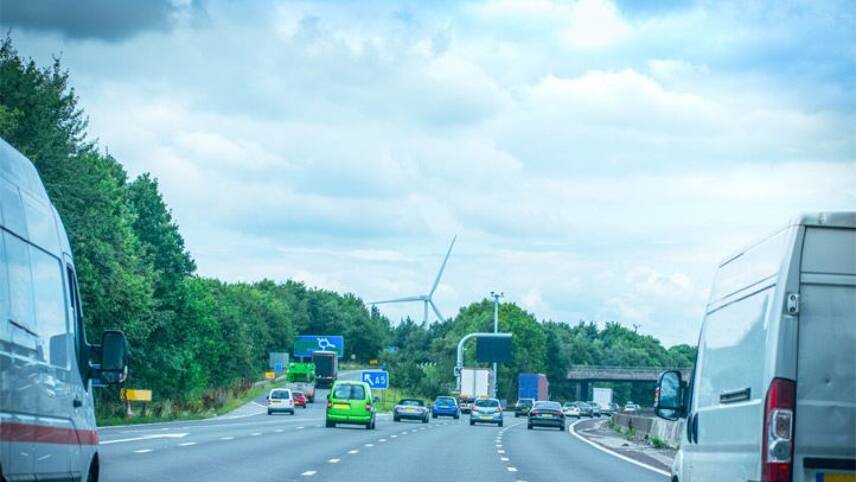Register for free and continue reading
Join our growing army of changemakers and get unlimited access to our premium content

Road transport accounted for one-fifth of the UK's emissions in 2019
In a statement published late on Friday (21 August), Highways England confirmed that it will be undertaking projects accounting for £14bn of the government’s £27.4bn Road Investment Strategy 2 (RIS2) as part of the UK’s Covid-19 stimulus plan. RIS2 was confirmed by Chancellor Rishi Sunak at the 2020 Budget and will run through to 2025.
The body was keen to emphasise the potential sustainability benefits of its plans, touting £1bn of investment in community-centric projects intended to improve walking, cycling and horse riding infrastructure; boost flood resilience or conserve cultural heritage. It also argued that its plans would help to halt biodiversity loss and would support 64,000 jobs in the construction industry.
Many of the projects detailed in Highways England’s plans do not involve capacity additions. Aside from building a new road tunnel under the Thames between Essex and Kent, improving road access to Stonehenge and widening the A19 in Sunderland to support plans for a new manufacturing park, the plans include 5,000 miles of resurfacing and 1,000 miles of safety barriers.
Green campaigners have voiced anger and disappointment in the plans, in much the same way that they did at the original RIS2 announcement. The main difference in response this time was that, after months of remote working, groups were particularly keen to see funding divested from roads and directed towards broadband connectivity.
Greenpeace UK’s head of transport Richard George called the scheme “a colossal waste of public money” and said it was incompatible with the concept of a “green recovery”. He cited Boris Johnson’s repeated verbal commitments to build a “greener, more resilient economy” post-lockdown.
“Instead of splurging cash on roads that will just create more traffic and lock in more pollution, we need to invest in healthier and more sustainable transport that’s accessible to everyone, such as decent cycle routes and better bus and train services,” George said.
The Government has earmarked £2bn of its £160bn recovery package for infrastructure and other initiatives designed to boost walking and cycling, but it is yet to unveil plans for public transport. Many organisations voiced disappointment this past week at news that rail fares will undergo a 1.6% increase in January 2021.
Elsewhere, Transport Action Network accused the Department for Transport, Treasury and Highways England of under-counting the emissions impact of RIS2. It believes that the DfT should focus less on the benefits a new or expanded road would bring to a local economy, and more on its lifetime emissions footprint. According to the BBC, the Treasury is fiercely denying these claims.
Transport Action Network has been threatening to take legal action over RIS2 since April, on the grounds that it is incompatible with the UK’s 2050 net-zero target and the nation’s commitment to the Paris Agreement. It is currently crowdfunding to take its case to the Court of Appeal, which, in February, blocked the expansion of Heathrow Airport on climate grounds.
Low-carbon journey or driving with the brakes on?
Back in 2016, transport overtook power generation as the UK’s most-emitting sector. Until the pandemic, it had seen its emissions steadily rise by 1-2% annually.
With road transport alone accounting for around one-fifth of the UK’s total greenhouse gas emissions every year, the pressure is on policymakers and businesses to decarbonise in line with the nation’s long-term climate targets.
Boris Johnson has agreed to move the national ban on new petrol and diesel car sales forward from 2040 to 2035, as recommended by the Committee on Climate Change, in a bid to tackle the issue. However, the new rule will not come into effect until COP26, which has been postponed a year. Johnson is now facing calls from MPs representing around one-third of his party, as well as an array of businesses and NGOs, to move the date once more, to 2030.
More broadly, the DfT is currently developing roadmaps for decarbonising “every single mode of transport” in line with the UK’s net-zero commitment. The roadmaps will be published to time, despite Covid-19-related challenges, the Department has said. Campaigners are urging civil servants to ensure that the plans encourage modal shift.
Sarah George


Please login or Register to leave a comment.